CLINTON — Given the lack of rain the last several months, the U.S. Department of Agriculture’s demonstration at the Maine Farm Days fair on Wednesday in Clinton was timely. Department representatives brought along a rainfall simulator to show people, especially farmers and landowners, how different types of soil react to rain.
The demonstration was one of dozens of events, demonstrations and vendor booths during the first day of the two-day fair, which drew hundreds Wednesday. There was also a large tent for children’s activities such as a petting zoo, a milking station and face-painting; as well as sheep herding demonstrations and pesticide credit workshops held by the University of Maine Cooperative Extension Service.
The rainfall demonstration, on a hot, sunny day, comes at a time when farmers are especially conscious of their water supply. The Northeast is experiencing its driest season in a decade or more. Central Maine isn’t as hard-hit as southern Maine and northeastern Massachusetts, but a moderate drought is hurting some areas more than others, according to meteorologists from the National Weather Service forecast office in Gray, and farmers have expressed worry over the weather and reported increased use of irrigation.
While the USDA wants to promote improving soil quality through better management practices, farmers also can use the techniques to encourage water infiltration in their soil.
“One of the best things you can do is minimize the runoff,” said Greg Granger, a resource soil scientist with the USDA in Maine.
Granger explained the five different soils held in trays under the rainfall simulator Wednesday before the demonstration.
One tray held perennial grass. One held corn that was tilled. Another held corn that wasn’t tilled, but had cover crops put on it. Another was soil from growing vegetables that wasn’t tilled, but it also had cover crops. The last was soil from organic vegetables that was heavily tilled without cover crops.
Granger turned the simulator on and a hanging sprinkler swung back and forth over the five trays. Holes under the trays emptied water into jugs directly underneath, while run-off from the soil went off the trays and into different jugs in front. The more water the jugs had, the less adept the soil was at allowing infiltration and soaking up the water.
The water hitting the tray holding organic vegetable soil was splashing up some dirt on the board behind it, too.
“You can see a lot of soil hitting up on that white board,” said Peter Abello, a district conservationist with the Maine Natural Resource Conservation Services, a USDA agency. “That’s called detachment.”
Dirt detaches from soil when it’s heavily tilled and becomes fine, making it harder for water to infiltrate the ground and easier for it to run (or splash) off. When dirt detaches and then gets transported someplace else, that’s called erosion, Abello said.
The jug holding the runoff water for the organic vegetable soil filled up the fastest and highest with muddy brown water.
“You don’t want to be the fish or the frog that’s trying to swim in that,” Granger said.
Soil used to grow organic vegetables is often heavily tilled to take out weeds, he said, because organic farmers often don’t use herbicides. Tilling beats out the carbon dioxide in the soil, leaving it with “no structure at all,” Granger said. Without anything to cling to, water will run off and won’t soak into the ground.
The soil samples that performed the best were the ones with cover crops. The soil covered in grass performed the best overall, soaking up the most water and sending almost nothing through to the jug.
Game wardens from the Maine Warden Service also had a display at the fair of illegally caught wildlife that wardens had confiscated. The purpose of the display was to educate people about the consequences of illegal hunting, Warden Steven Couture said.
Warden Chris Roy said illegal hunting is declining, probably because the penalties have increased. Now hunters can be charged thousands of dollars and sent to jail. There are also more resources available to low-income people who need food, he said, so they see fewer people hunting as a way to survive.
Madeline St. Amour — 861-9239
mstamour@centralmaine.com
Twitter: @madelinestamour
Copy the Story LinkSend questions/comments to the editors.


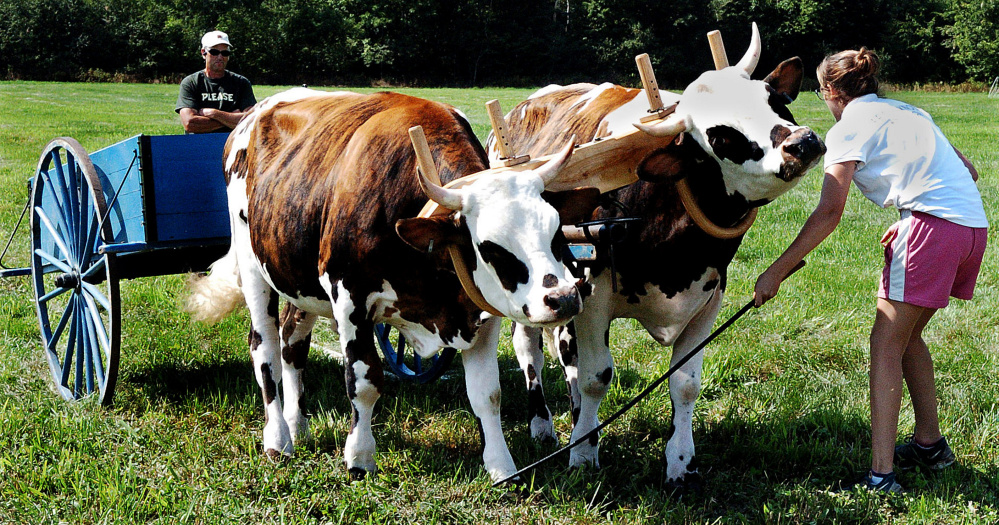
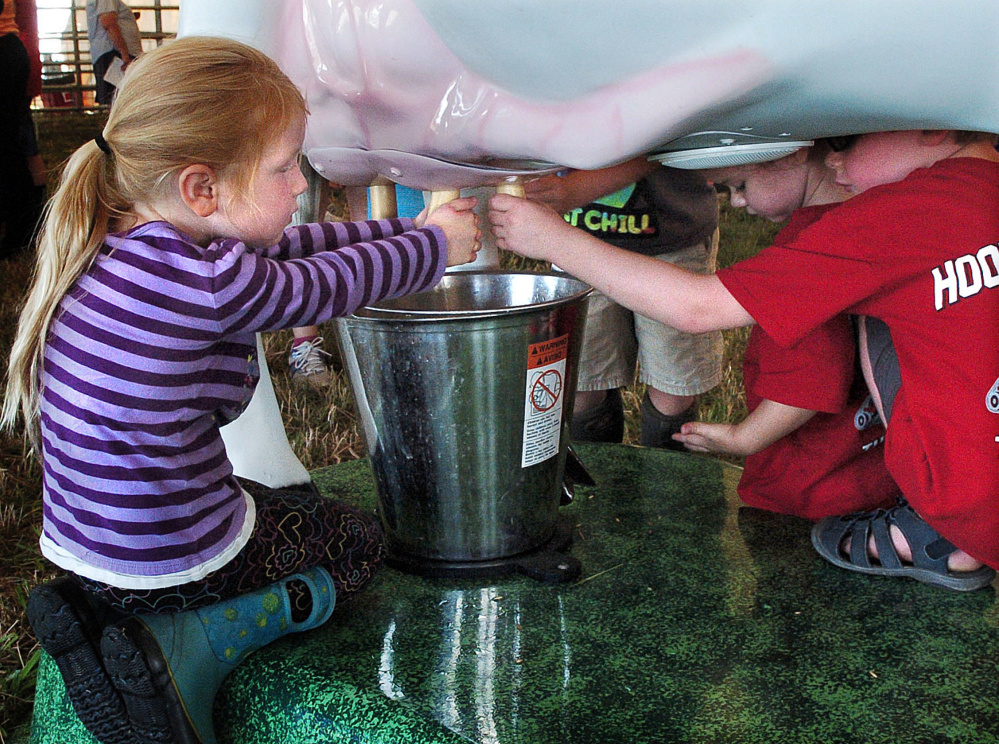
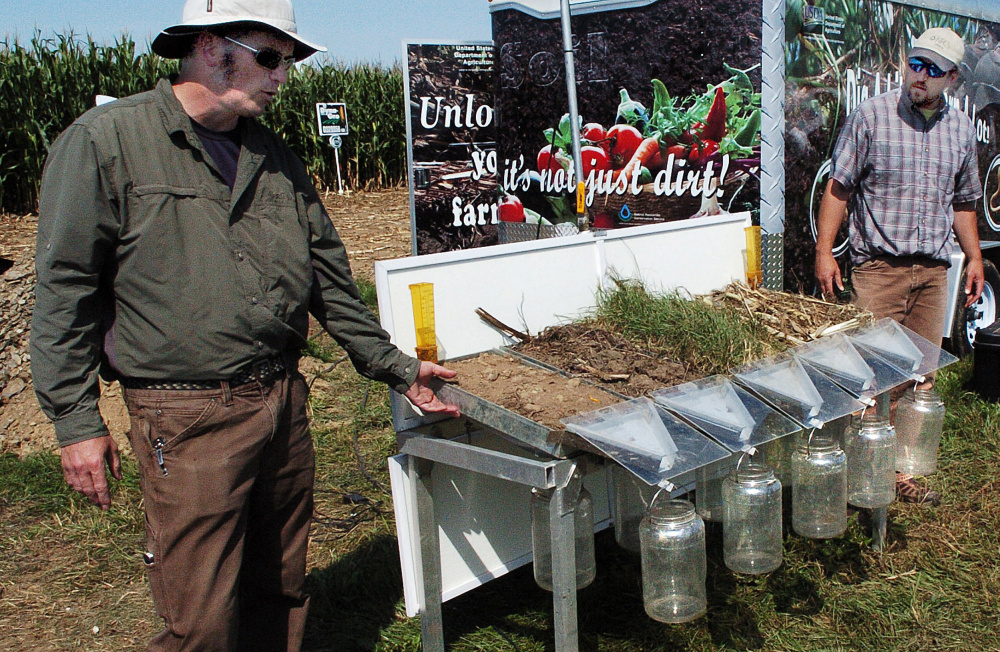
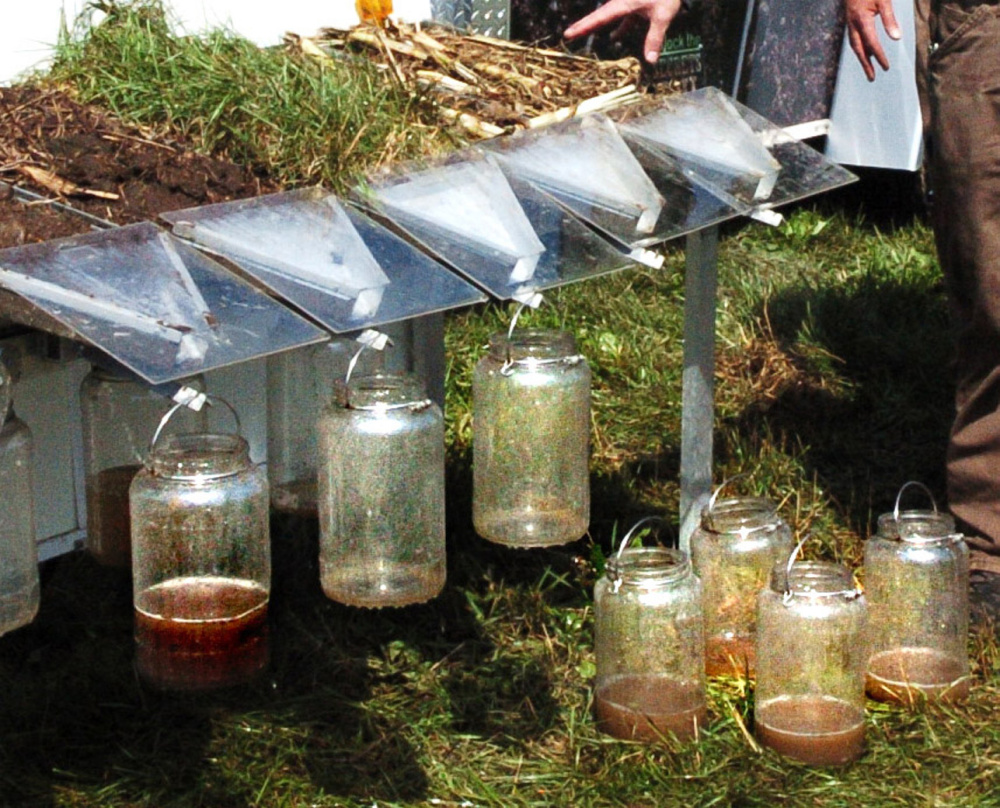
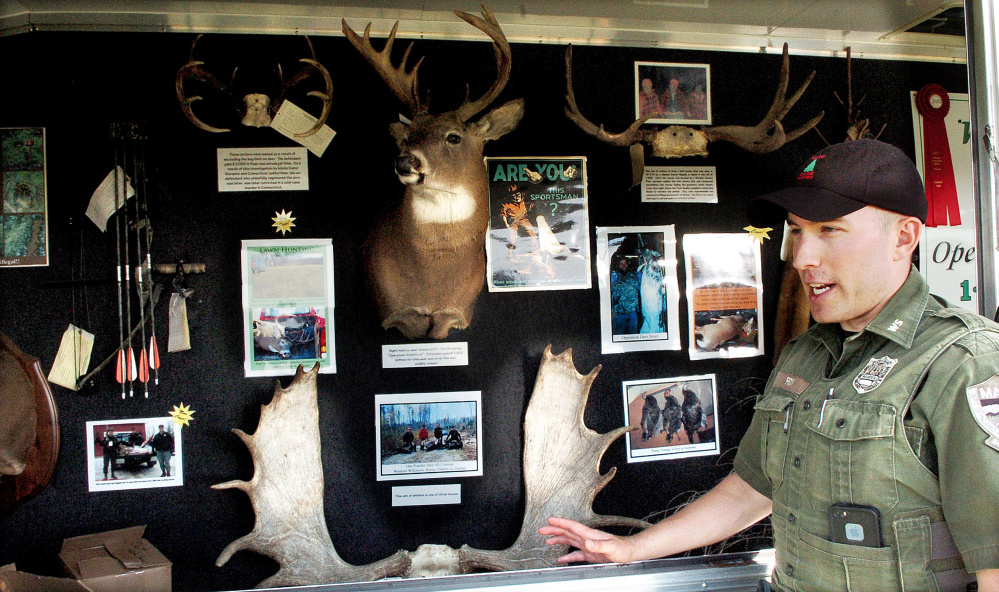
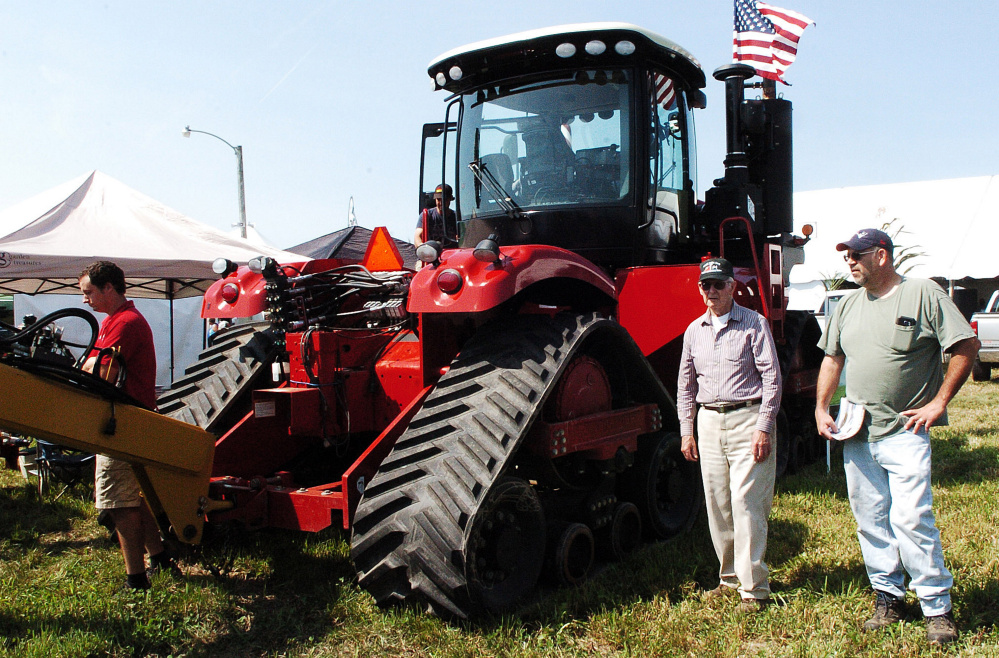


Success. Please wait for the page to reload. If the page does not reload within 5 seconds, please refresh the page.
Enter your email and password to access comments.
Hi, to comment on stories you must . This profile is in addition to your subscription and website login.
Already have a commenting profile? .
Invalid username/password.
Please check your email to confirm and complete your registration.
Only subscribers are eligible to post comments. Please subscribe or login first for digital access. Here’s why.
Use the form below to reset your password. When you've submitted your account email, we will send an email with a reset code.